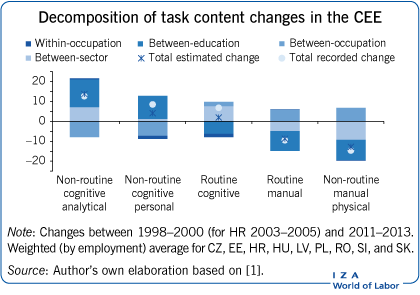
When you work in a company, you'll have the unique opportunity to be a manager one day and a peer the next. As a result, there is a wide range of experience and expertise that you'll be able to draw from when preparing for your transition. The transition isn't always smooth, but there are things you can do in order to ease the process.
Communication skills
Your career success depends on your ability to communicate effectively. Managers must communicate expectations to their staff. According to a recent survey 91% of employees felt that their managers did not communicate with them properly enough to give effective leadership. Fortunately, it is possible to improve your communication skills if you invest time and effort into learning them.
Before you assume a new role, it is important to learn how to communicate effectively. Make sure you take the time and learn to interact with your bosses. These skills will allow you to feel more at ease in your new job and build trust and credibility among your colleagues.
Trust
The process of transitioning from peer to manager involves making adjustments to both roles. It is not possible to do it all alone. However, there are things you can do in order to foster a positive atmosphere. It is important to communicate openly with your colleagues about your plans for handling your new role. Trust and credibility will be built by being open with colleagues.

Your first task as a new manager is to build up the trust of your peers. They need to know that you are confident but humble at the same. It is important not to make excuses for your new role and be proud of your new position. Your peers need to trust you and your decisions.
Leadership style for individuals
Effective leadership practice requires that you understand your personal leadership style. Studies have covered a wide range of leadership styles over the years. We'll be discussing the impact of different leadership styles on an organisation's culture in this article. We'll also talk about how to adapt your style to suit the needs and preferences of your new team.
A transition from peer to manager can be a challenging time. Even though your coworkers may be thrilled for your promotion, they might be uncertain about your decision. Be open and honest with them about the discomfort of the move.
Mentoring
Mentors can play a crucial role in your career growth. It does not matter if you're just starting or are already in the top positions of your company. A mentor can be a great resource. A mentor will be able to offer valuable advice and insight, but it is also important to make sure the relationship is mutually beneficial.
A mentor can help mentees reach their goals. Mentors can offer professional advice as well as connections with industry professionals and mentors who may be able help them find the right job. A mentor who is great at recognizing mentees' growth areas and introducing them to new projects will do wonders for their career.

Avoid micromanaging
Micromanaging is a common error in transitioning from peer to manager. This can be unproductive and stressful for both the manager as well as the team. It also hinders trust and deters independent work. Instead, let your team experiment and set clear goals.
Micromanagement can be caused often by a lack or trust in the group, which can lead to stress for the employee. Micromanagement can also be time-consuming. It can also hinder an employee's development as a leader.